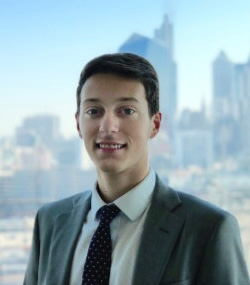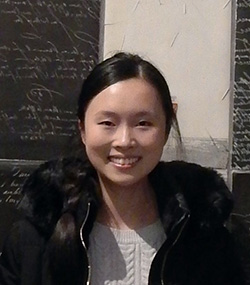Student Organization Spotlight: The Criminal Justice Society
January 03, 2019
Learn about Drexel’s Criminal Justice Society — and how you can get involved — from two criminology and justice studies majors: Sean McClellan ’21, president of the society, and Yih-Chia Lam ’19.
 Sean McClellan
Sean McClellan
Tell us about the Criminal Justice Society (CJS).
SM: The Criminal Justice Society connects students of all majors and the community to the professional criminal justice field through hands-on experiences and events.
What kinds of activities does CJS do throughout the year?
YCL: Over the years, we have run book drives for a local correctional facility, donated to the annual Salvation Army holiday toy drive, and hosted distinguished professionals from the District Attorney’s Office, federal agencies from the FBI, and Drexel’s own forensic psychology faculty. There is also a bi-annual picnic with fun and games, where club members and criminology faculty can hang out in a laid-back setting (usually with a barbecue).
SM: Members can also expect fundraisers for causes such as the American Red Cross and Philadelphia Children’s Alliance.
Describe your favorite CJS memory.
SM: My favorite memory is attending a talk with police officers in the South Philadelphia Gang Task Force. The officers showed us how gangs have transformed over the years in Philadelphia and shared stories of some of the gangs. I found the talk extremely interesting and beneficial to my academic plan. Because of this experience, I knew as a freshman that I wanted to pursue a co-op with them.
YCL: My favorite experience was when the club hosted a special agent from the Drug Enforcement Administration (DEA), who spoke on the heroin epidemic. He discussed the evolution of street drugs and tactics that government agencies have taken to prevent their distribution. A graduate student from Drexel’s Dornsife School of Public Health happened to be in the audience that night, and she asked several thought-provoking questions, bringing an entirely new perspective to the conversation. As law enforcement and health care providers approach the issue of drug abuse from completely different angles, it was intriguing to hear two very different parties suggest compromises and solutions to such a polarizing topic.
 Yih-Chia Lam
Yih-Chia Lam
How has being a member of the society benefitted you, professionally and/or personally?
YCL: Being a member of the Criminal Justice Society has shown me how diverse the field can be — in part because it encourages curiosity. If a member voices an interest in a particular guest speaker, the society will bring that thought to fruition. Our faculty advisor, Ashley Dickinson, PhD, has introduced members to professionals we otherwise would not interact with as regular undergraduate students, such as gang intelligence officers, federal agents and forensic psychologists. Connecting with those who share similar interests, whether peers or professionals, has brought invaluable insight into my own career prospects.
SM: Professionally, I have heard from people in different parts of the field and gained a narrower idea of what I want to do in my career. I have built a strong network of people in these careers I may pursue. Personally, the club has introduced me to a number of people I now call my friends.
Are there leadership opportunities within the CJS?
SM: Our club has the typical leadership roles: President, Vice President, Events Coordinator and Treasurer. However, our club is unique in that some of the club’s events are created through member networks and contacts, giving any member a chance to help the officers lead or plan events, fundraisers, or anything else they find interesting.
Who is the society open to? How can interested students get involved?
SM: The Criminal Justice Society is open to all students! Anyone who is interested can learn more and join on the CJS DragonLink page. From there, attending our general body meetings will get you updated on what is upcoming for the club!